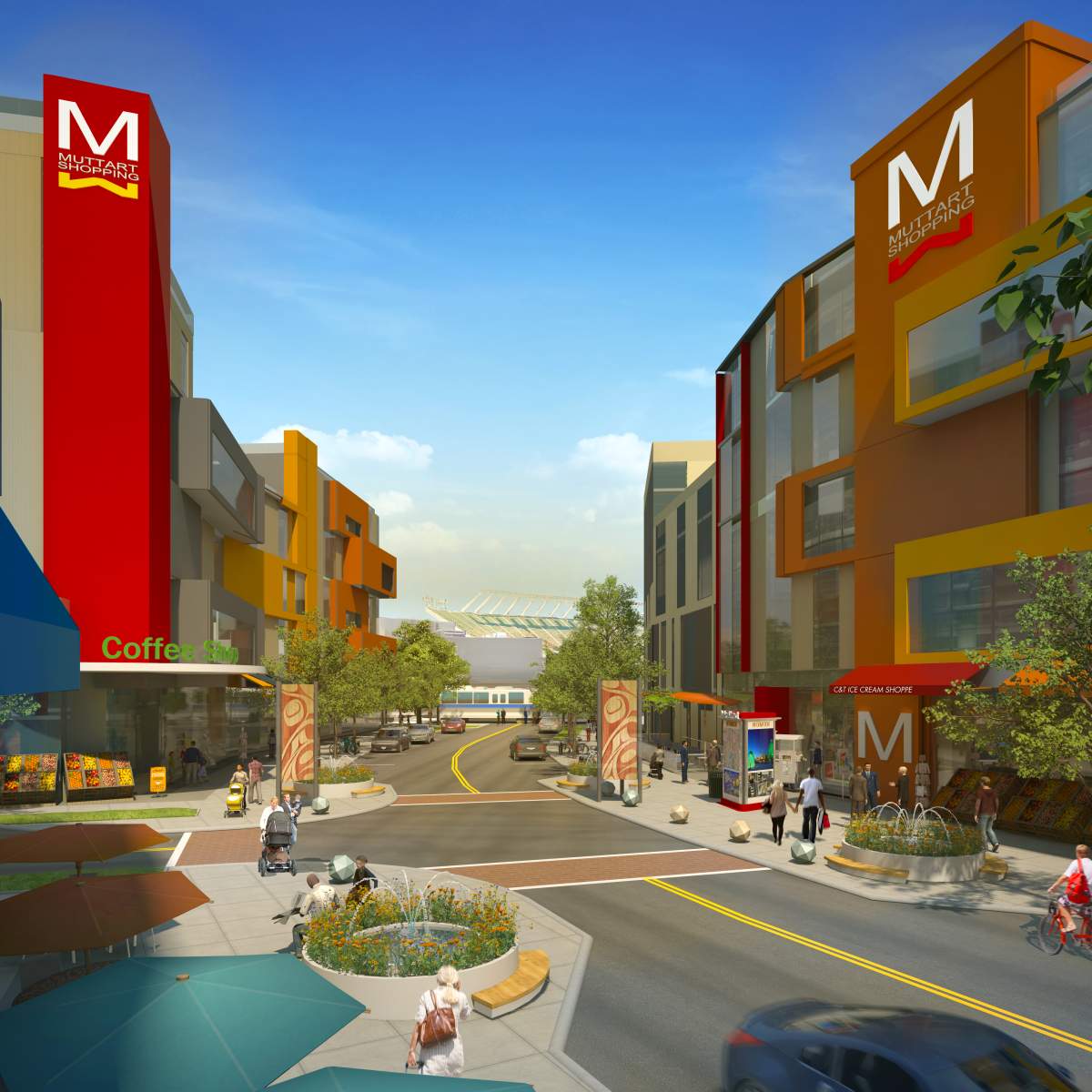A new development in the shadow of Commonwealth Stadium is one step closer to reality. City council approved the plan Monday evening during a public hearing for the Stadium Station transit oriented development.

The Muttart Lands is a nine-acre site located at 109 Avenue and 84 Street. The plan will see the land adjacent to Commonwealth Stadium converted to add apartment buildings, which will take advantage of the nearby LRT station.
“This is one of the premier opportunities for a lot more density because of what’s nearby already,” Mayor Don Iveson said.
READ MORE: What happened to the urban village planned for Fort Road in Edmonton?
The big change in the lay of the land sees the plan call for the current park’n’ride to eventually get replaced with a tower, Iveson said. He sees it as “really better suited to development.”
The idea is to hook the development into the LRT, the Commonwealth Community Recreation Centre, the river valley and Kinnard Ravine. Envisioned is a “main street” running east-to-west across the LRT tracks just south of Stadium Station, that will link new apartment towers with other low rise housing, and connecting with existing properties.

READ MORE: Urban residential development coming to Edmonton’s Muttart Lands

Get daily National news
“Anything that makes the LRT work better and gives us cleaner, safer and more direct access, we’re there,” said Jim Gendron, who’s with a network of community leagues supporting the idea.
A big concern with losing the park’n’ride is how more vehicles will attempt to find spots along side streets in the neighbourhood.
“People I know that live in the Parkdale part of the community are quite concerned. A lot of that parking, even now, is driven into the neighbourhood and it takes up space and makes it inconvenient for residents,” Gendron said.
Iveson said the bus parking is key during major events at Commonwealth Stadium and a plan would be hammered out ahead of time.
“We’re mindful of the fact that the bus staging area will need to be maintained as part of the flow and people to and from Commonwealth at major events,” he said.
“So the more likely scenario is that some of the parking area not needed for the staging is the area that might get redeveloped and then we would need to have another strategy for where to do the bus staging before we would consider actually surplussing the land from municipal needs and looking at redevelopment.”
The Stadium Station development will link the Quarters to what eventually is planned for the exhibition grounds.
“The planning folks have continued to reassure us that all those plans will be considered together and what even the implications of one is will affect the other,” Gendron said.
There’s even talk of building a third LRT station to go with Coliseum and Stadium — something the mayor said is part of the bigger picture city wide, to create “town centre” amenities with LRT stations as a hub.
“This is just the first of many opportunities for us to see a lot more people choose to live affordable, walkable, low-environmental impact lifestyles, close to existing and future public transit.”
According to the city website, Colliers International Consulting estimates it will generate almost $29 million in municipal property taxes during the development period, plus residential property taxes of $4.55 million annually after completion.













Comments
Want to discuss? Please read our Commenting Policy first.